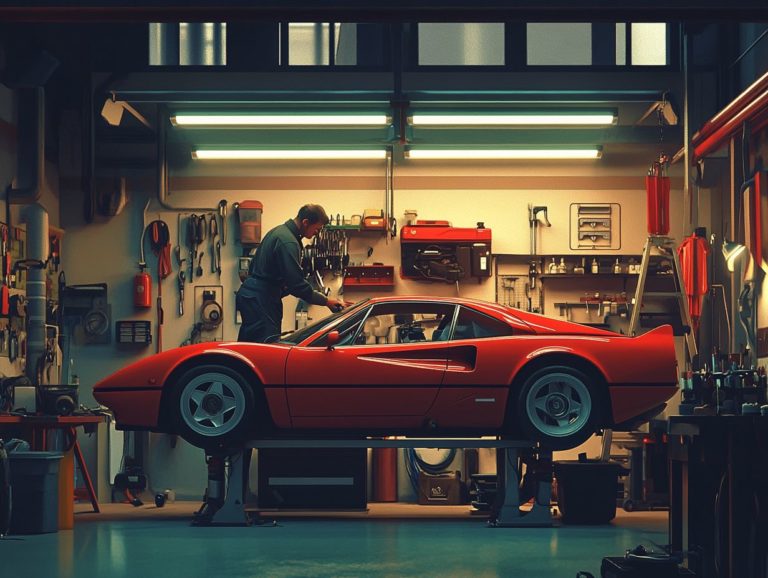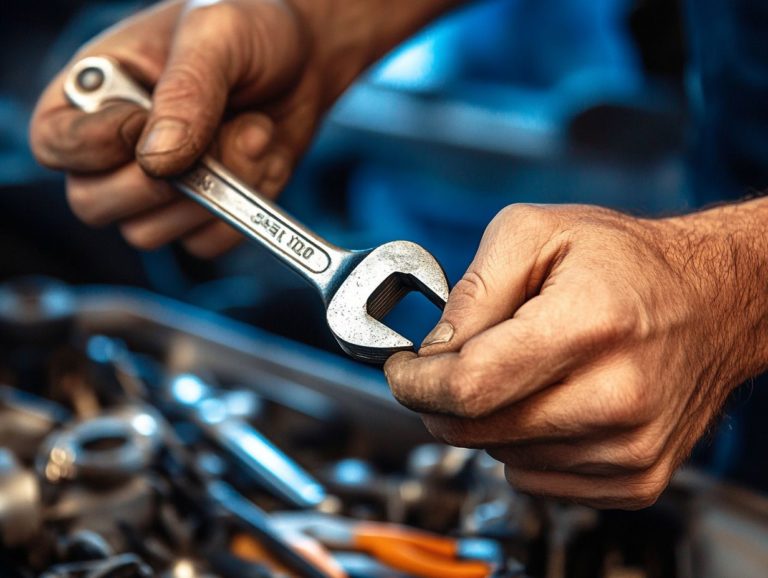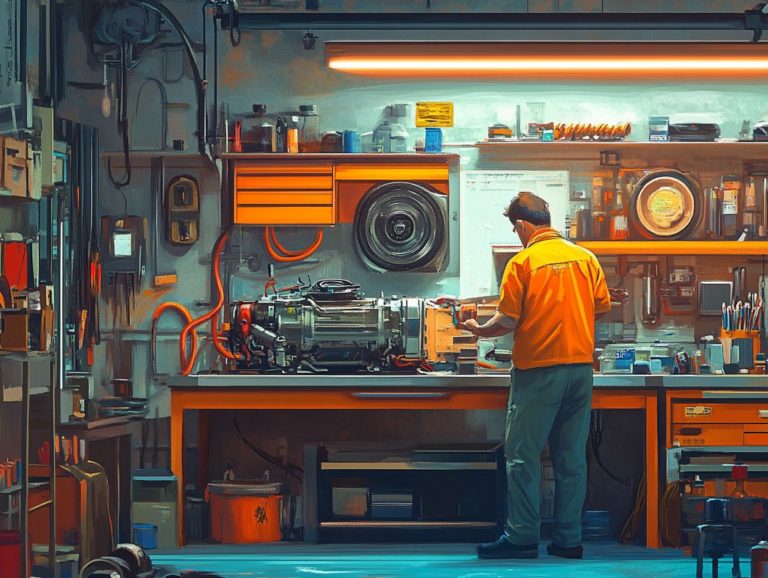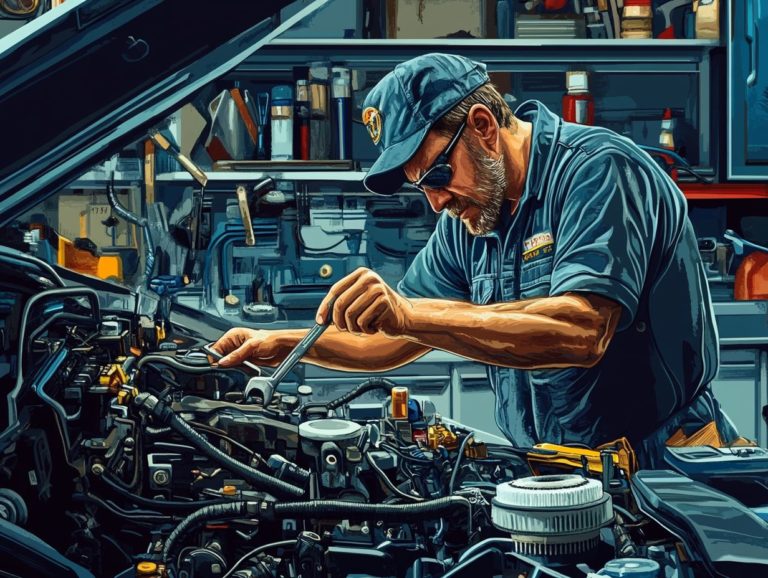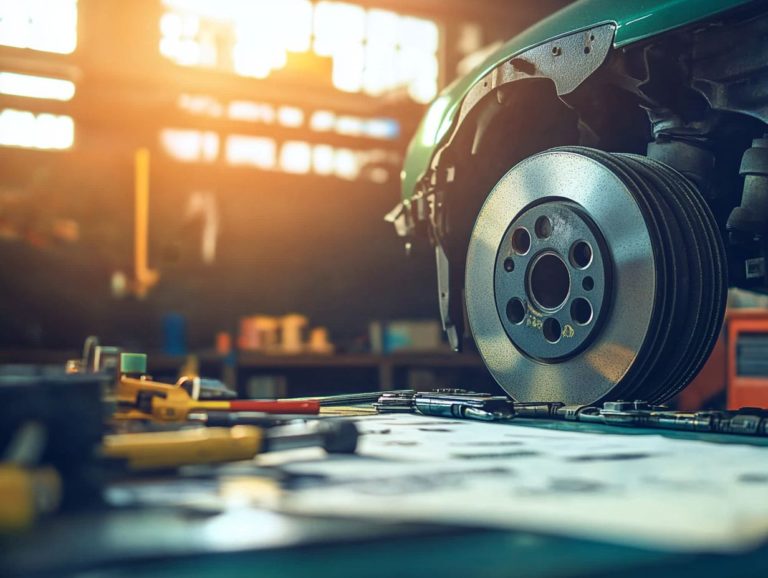5 Common Repairs That Can Affect Safety
Every homeowner understands that maintaining a house in excellent condition is essential for both comfort and safety.
Some repairs carry more weight than others. This article delves into five prevalent issues: faulty electrical wiring, leaking roofs, cracked foundations, structural damage, and malfunctioning appliances all of which can endanger your home s safety.
You ll discover the warning signs to watch for, helpful prevention tips, the risks associated with neglecting these repairs, and guidance on finding trustworthy contractors.
Keep reading to ensure your home remains the sanctuary it s meant to be.
Contents
- Key Takeaways:
- 1. Faulty Electrical Wiring
- 2. Leaking or Damaged Roof
- 3. Cracked Foundation
- 4. Structural Damage
- 5. Broken or Malfunctioning Appliances
- How Can These Repairs Affect the Safety of a Home?
- Frequently Asked Questions
- What are the 5 most common repairs that can affect safety?
- Why is it important to address these 5 common repairs?
- How often should I have these 5 common repairs checked?
- What are some signs that indicate these repairs are needed?
- Can I perform these 5 common repairs on my own?
- How much should I expect to pay for these 5 common repairs?
Key Takeaways:
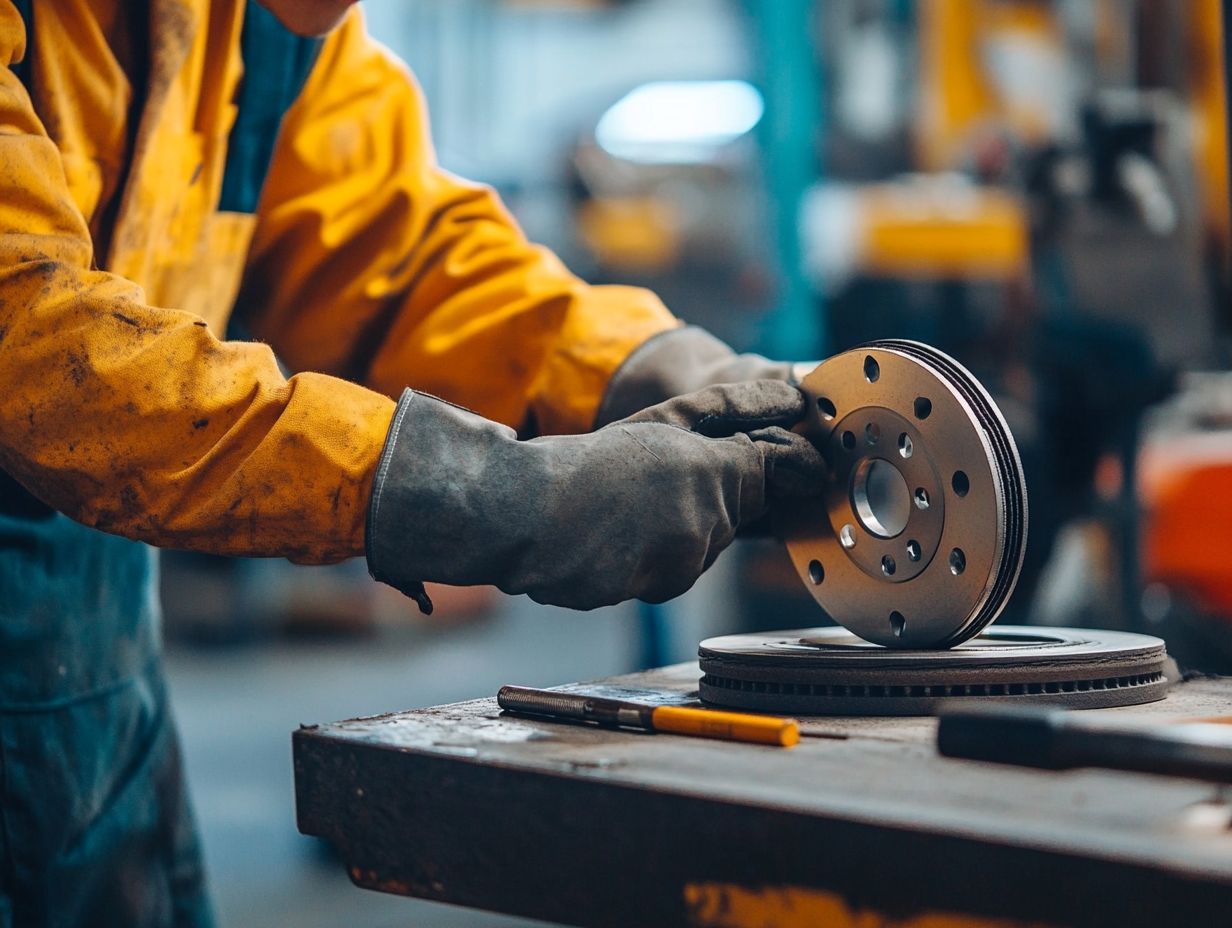
- Faulty electrical wiring can pose a serious safety hazard, causing electrical fires and electrocution. Regular inspections and proper maintenance can help prevent these issues.
- A leaking or damaged roof can lead to water damage, mold growth, and even collapse. Homeowners must check regularly for signs of damage and promptly address any issues to maintain a safe living environment.
- Cracked foundations can compromise how well the house holds up, leading to potential collapse. Homeowners should be aware of warning signs and address any foundation issues as soon as possible.
1. Faulty Electrical Wiring
Faulty electrical wiring creates serious safety concerns, putting occupants at risk and potentially leading to grave accidents. Understanding this common issue is vital for ensuring safety in the home.
Problems such as erratic lights or loss of power often originate from faulty wiring. Regular inspections are crucial for preventing these risks.
Recognizing these issues can lead to legal ramifications, especially under the California Lemon Law, which protects consumers against persistent defects. Ensuring that electrical components work properly is essential for the safety of everyone in your home.
2. Leaking or Damaged Roof
A leaking or damaged roof can lead to safety concerns, including water damage and mold growth. Timely maintenance is crucial to prevent injuries linked to these defects.
Water infiltration can jeopardize important components like wiring, creating serious risks during storms. Mold thrives in damp environments and poses respiratory hazards to anyone in the house.
Major brands stress the importance of regular inspections of roofs to avoid these issues. Make it a habit to check for leaks and maintain your roof to prevent serious damage!
3. Cracked Foundation
A cracked foundation can severely compromise the home’s stability, increasing risk for everyone inside. It s crucial to recognize this defect and address it promptly.
These cracks can impact how the house stands, potentially causing instability during storms or earthquakes. Early identification is key; look for unusual cracks or misalignment as warning signs.
Consulting professionals for a thorough evaluation is essential. Their expertise will help ensure your home remains safe and sound, benefiting both you and your family.
Stay proactive about these repairs to keep your home safe and sound!
4. Structural Damage
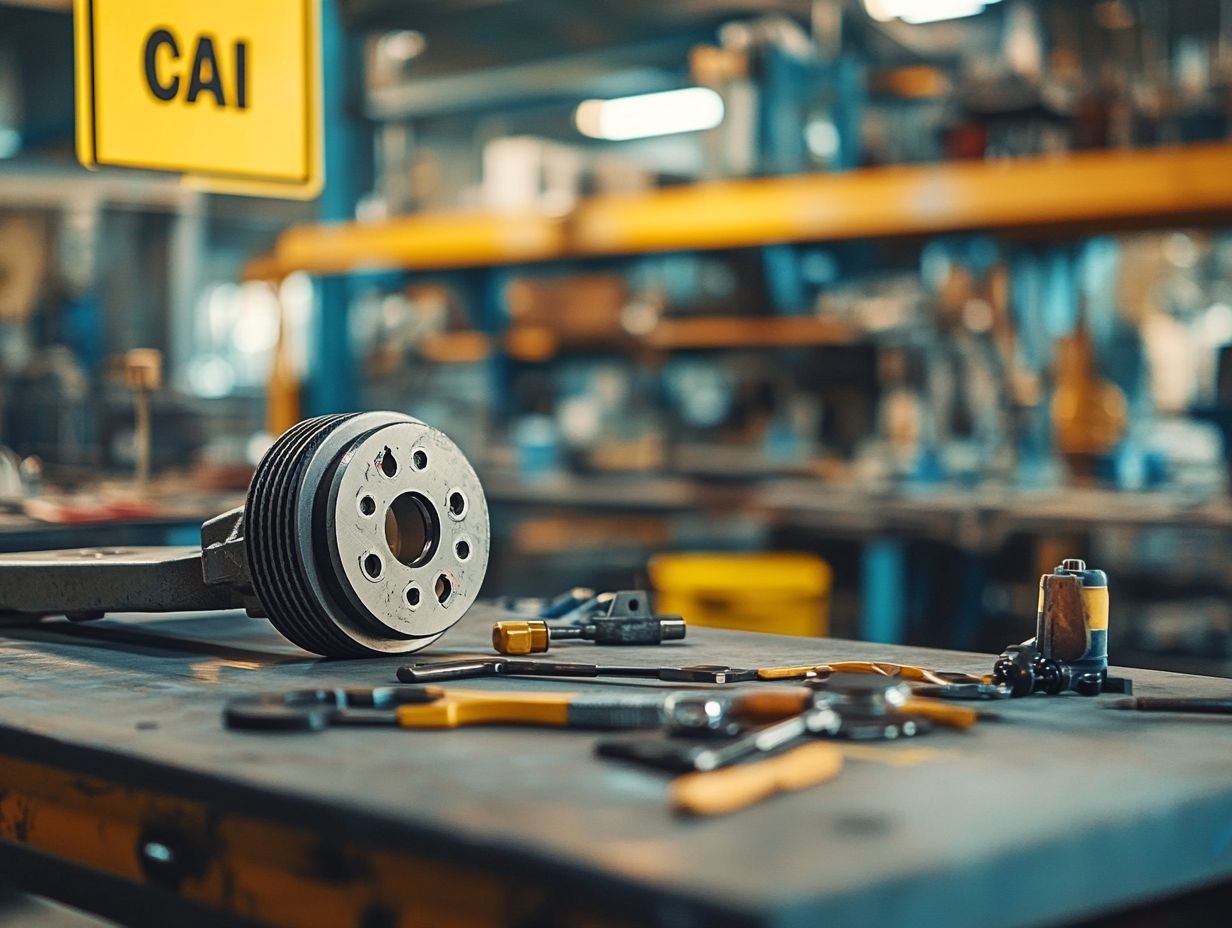
Structural damage in vehicles poses a significant safety concern. It can put you at risk and lead to common injuries in the event of an accident. It s crucial to act quickly to detect and address these defects to safeguard your well-being.
Different types of damage can appear, including frame misalignment (when the car frame is not straight), crumpled panels, and compromised suspensions all often resulting from collisions, wear and tear, or challenging driving conditions.
Regular inspections are essential. They allow you to identify these issues early on, potentially saving you from costly repairs while ensuring that your vehicle operates safely.
To minimize risks associated with structural defects, prioritize routine maintenance, drive carefully, and seek professional assessments after any significant impact. Make sure all safety features work properly, adding an extra layer of protection against unforeseen circumstances. This will give you peace of mind on the road.
5. Broken or Malfunctioning Appliances
Broken or malfunctioning appliances in your vehicle can create serious safety concerns. They increase your risk as a driver and possibly lead to defects that undermine functionality. This underscores the critical importance of regular maintenance in the automotive industry.
Common problems often arise from electrical components, such as malfunctioning headlights or faulty brake lights, along with HVAC systems (heating, ventilation, and air conditioning systems) that fail to operate properly. These issues can severely impair visibility and diminish comfort, resulting in unsafe driving conditions.
You should regularly inspect these systems to identify potential problems early on. Keeping a close eye on your brakes, tires, and battery health can prevent significant complications in the long run.
Awareness is essential; neglecting these aspects can lead to more extensive repairs and increased safety risks down the road. To help prevent these issues, consider the 5 essential maintenance tips to avoid repairs. Don’t wait—check your vehicle today!
How Can These Repairs Affect the Safety of a Home?
Understanding how repairs related to vehicle defects, like faulty electrical wiring or structural damage, can impact the safety of your home is essential. These safety concerns can lead to common injuries and mechanic-related accidents. For luxury vehicles, knowing about 5 common repairs can help prevent these issues and may even invoke consumer protection measures under laws such as the California Lemon Law if overlooked.
These vehicle issues create risks not just on the road but also for families living nearby. For example, imagine a car experiencing brake failure crashing into your home, resulting in significant damage and potential injuries to residents.
As a homeowner, you need to recognize that certain vehicle defects can translate into serious liabilities and legal implications. Staying informed about your consumer rights is crucial in this regard.
There are legal avenues available to seek compensation for any damages or injuries stemming from negligence. This ensures that you and your loved ones are protected from the fallout of unsafe vehicles in your vicinity.
Thus, the interconnected nature of vehicle and home safety highlights the importance of addressing both when discussing overall community welfare.
What Are the Warning Signs of These Repairs?
Recognizing the warning signs that your vehicle needs repairs is essential for preventing safety issues and common injuries. For hybrid vehicle owners, being aware of 5 common repairs for hybrid vehicles can aid in early detection, allowing for timely maintenance and enhancing overall safety in the automotive realm.
When you notice oddities like flickering dashboard lights or having trouble starting the engine, it s a clear signal that there might be underlying electrical issues requiring your immediate attention.
Likewise, unexpected noises like grinding or whining while you re driving could point to mechanical malfunctions, possibly involving the transmission or brakes.
If you find your vehicle experiencing uneven tire wear or pulling to one side, it might be a sign of structural damage or misalignment, jeopardizing your handling and stability.
By recognizing these warning signs, you can take proactive steps to seek repairs and ensure your safety on the road. Remember, protecting your loved ones starts with maintaining your vehicle, which can include understanding the common repairs that increase car value!
How Can Homeowners Prevent These Issues?
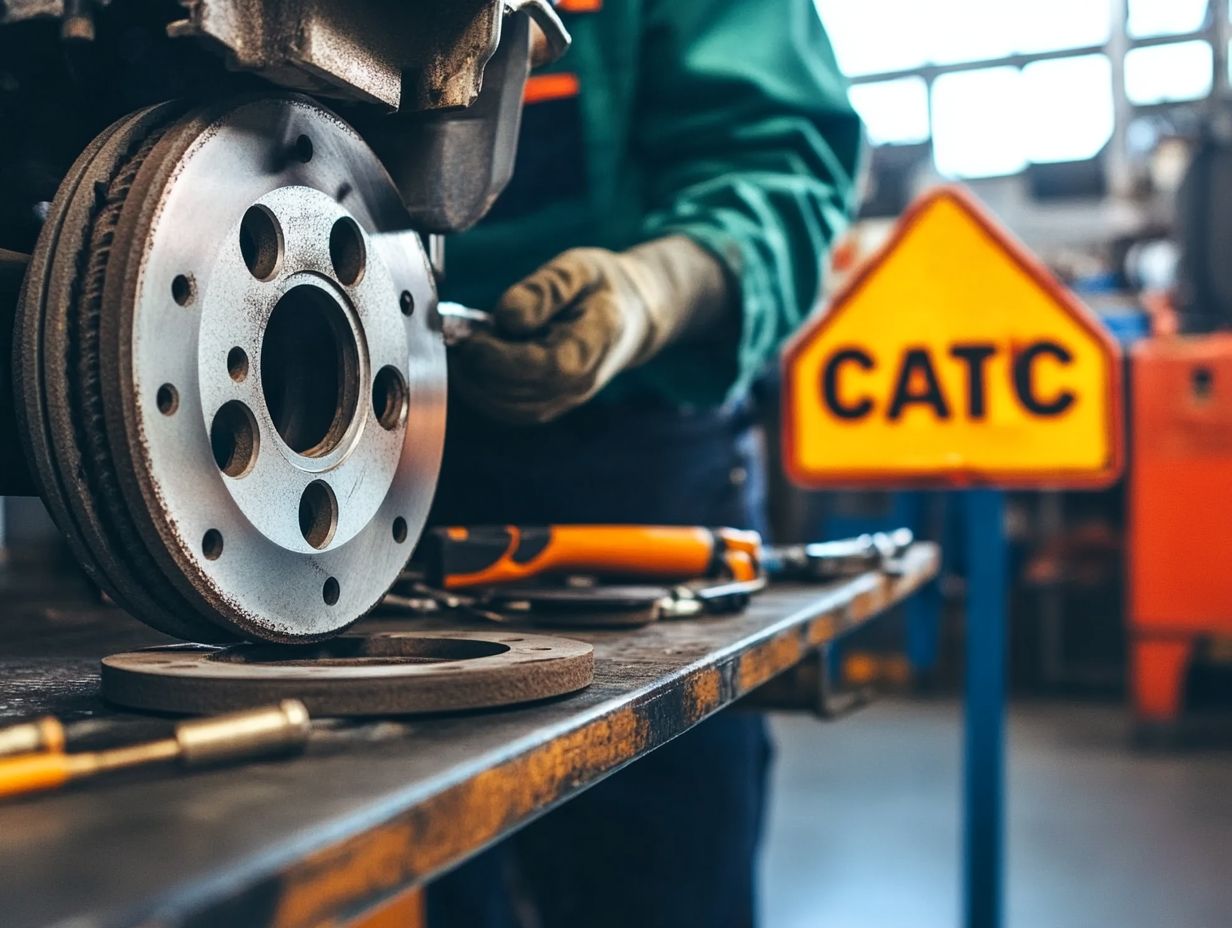
Homeowners can take proactive measures to prevent issues from vehicle defects by implementing effective maintenance tips that address safety and reduce driving risks. This ultimately ensures the safety of both vehicle and home.
For instance, regularly checking your tire pressure and tread depth can significantly enhance your vehicle’s performance. It also minimizes the chances of unexpected tire blowouts.
It’s wise to inspect fluid levels, such as oil and coolant, as these are vital for optimal engine operation. Pay attention to warning lights on the dashboard and don t ignore any unusual sounds while driving; they could signal underlying problems.
Scheduling professional inspections periodically offers peace of mind, ensuring that any potential defects are addressed before they escalate into serious issues. This reinforces the importance of maintaining both safety and reliability on the road.
What Are the Potential Risks of Ignoring These Repairs?
Ignoring repairs related to vehicle defects can escalate safety concerns, increasing risk for drivers and leading to common injuries. Prioritizing maintenance is essential for your vehicle’s safety, and following 5 essential checks to avoid common repairs can help ensure your vehicle remains in top condition.
Approximately 50,000 accidents each year stem from neglecting vehicle maintenance. This underscores the critical need for quick fixes.
When essential components like brakes (the device that slows down or stops your car) or tires are overlooked, the consequences can be severe not just for you but also for passengers and bystanders.
Data from the National Highway Traffic Safety Administration reveals that 30% of all crashes are linked to mechanical failures, showing you must act now! Being proactive about maintaining your vehicle not only enhances your personal safety but also promotes the well-being of the community, as preventing accidents can ultimately save lives.
How Can One Find Reliable and Trustworthy Contractors for These Repairs?
Finding a trustworthy contractor for your vehicle repairs is key! Choosing the right contractor fulfills consumer protection needs and helps you comply with regulations like the California Lemon Law.
As you embark on this important journey, prioritize a few key strategies. Start by exploring local contractors online; reading reviews can give you a glimpse into other customers experiences.
Verifying certifications and licenses will provide insight into the contractor’s qualifications, ensuring you’re dealing with professionals who adhere to industry standards.
Assessing the contractor’s experience with the specific type of repair you need is also a smart move. Understanding consumer protection laws enables you to make informed decisions, serving as a vital safety net when navigating potential disputes with service providers.
What Are the Most Common Causes of These Repairs?
Identifying the most common causes of vehicle defects is crucial for you to prevent safety issues. This knowledge enables you to implement effective maintenance tips, ensuring your vehicle remains both safe and functional.
Among the usual suspects is wear and tear, which happens as parts get older and may not work as well. Environmental factors think extreme temperatures, rough road conditions, and exposure to corrosive elements play a significant role in your vehicle s decline.
While manufacturing defects are less common, they can lead to serious problems if you don t address them promptly. To combat these challenges, you should adopt a rigorous maintenance schedule.
Regular checks and fluid changes can make your vehicle last longer. You’ll feel more confident each time you drive.
Frequently Asked Questions
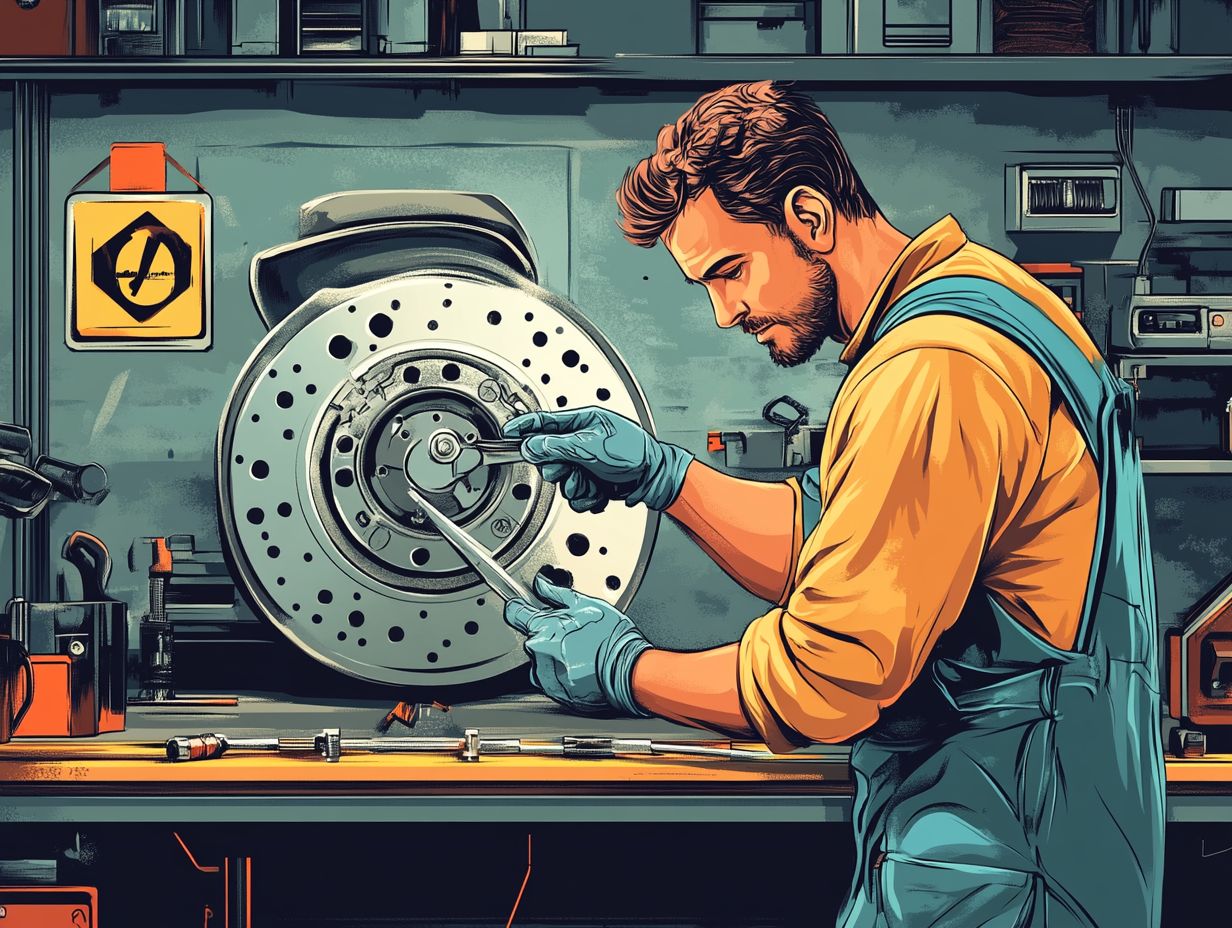
What are the 5 most common repairs that can affect safety?
The 5 common repairs that can affect safety include brake replacements, tire replacements, windshield replacements, suspension repairs, and electrical system repairs.
Why is it important to address these 5 common repairs?
Don’t ignore these repairs! They can make a huge difference in your safety on the road. Knowing about 5 common repairs for family vehicles is crucial, as these repairs directly impact your vehicle’s safety and can greatly affect your driving experience.
How often should I have these 5 common repairs checked?
Have your vehicle checked at least once a year. If you notice any wear and tear, don t wait! Regular maintenance helps prevent larger and costly issues.
What are some signs that indicate these repairs are needed?
Look out for these signs: squealing or grinding noises when braking, uneven tire wear, cracks or chips in the windshield, a bumpy ride, and flickering dashboard lights.
Can I perform these 5 common repairs on my own?
You can handle some minor repairs yourself, but it s best to have a professional mechanic take care of these repairs. They provide the best safety and quality because they have the right tools and expertise.
How much should I expect to pay for these 5 common repairs?
The cost can vary based on your vehicle s make and model, as well as the severity of the issue. Always get a quote from a trusted mechanic before proceeding with repairs.

